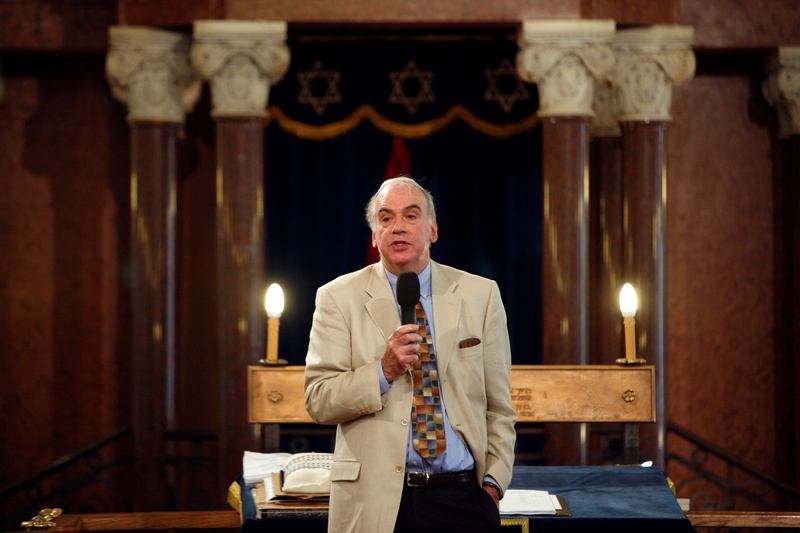Dr. Stephen Berk on Anti-Semitism, the Holocaust, and Moving Toward a Hopeful Future
On April 16, Roxbury Latin students, faculty, and staff welcomed Dr. Stephen Berk as one of the spring’s virtual Hall presenters. Dr. Berk is the Henry and Sally Schaffer Professor of Holocaust and Jewish Studies at Union College. He has earned an international reputation for his teaching, writing, and research surrounding Russian and Soviet Jewish History, the American Jewish experience, and anti-Semitism, among other topics. He teaches a variety of history courses at Union; directs the college’s interdepartmental program in Russian and Eastern European Studies; and helps advise the Hillel organization. He is also great uncle to Daniel Berk, Class II, and Adam Berk, Class of 2019.
In this year, marking the 75th anniversary of the liberation of the Nazi concentration camp at Auschwitz-Birkenau, Dr. Berk spoke about the anti-Jewish sentiment embedded in Western civilization—its origins, its evolution, and the many tragedies it has spurred. “The historiography on the Holocaust is voluminous,” Dr. Berk began. “I begin with causation, but I must caution you that this is not mathematics. This is not physics. You cannot say in history A plus B produces C. You look at the evidence, the data, the memoir literature, and the documentation, and you make informed hypotheses. This is the best that you can do.” His talk brought listeners from the teachings of the early Church of Christianity and the Crusades, through Communism, the Great Depression and the Holocaust, all connected by a thread of anti-Semitism: “When a people is held in contempt for a very long period of time, what develops is a folklore about that people. And the folklore about the Jews is very, very hostile. You see it in the woodcuts, in the paintings of the medieval and the early modern period, the idea that the Jews have tails and horns, that they kill Christian boys and girls at the time of Passover… This is absolute nonsense, but thousands upon thousands of Jews will be killed, and even more Jews will be forced to leave their countries, because of an eruption of anti-Jewish sentiment.”
In his presentation, Dr. Berk aimed to communicate several important messages: First, we must never minimize the role of personality—individual humans and their motivations—as we shape our understanding of historical events. (Dr. Berk cited Hitler’s deep hatred for Jews as well as his unique style of leadership as an example: “No Hitler, no Holocaust,” he said.) His second message spoke to how we choose to move through the world today. He implored all in attendance to never remain silent in the face of discrimination: “Be careful of racism. Be careful of any form of discrimination, whether it is based on race, religion, gender, ethnicity, class. The road to Auschwitz was paved by anti-Semitism, and when anti-Semitic words or acts are left unchecked, their power and danger only grows.” Dr. Berk also reminded students that science and medicine without ethics can lead to catastrophe. “Some of the people who are responsible for the murder of Jews were some of the most sophisticated scientific minds in Germany.”
In closing, Dr. Berk extolled the heroes of World War II: the soldiers who headed knowingly and bravely into German and Japanese fire; the individuals who sheltered Jewish men, women, and children from the Nazis, under penalty of death to them and their families.
“Study the Holocaust well, my friends,” implored Dr. Berk, “and remember that nobody has a monopoly on the truth. I’ve only given you some of the lessons, you can derive other lessons. Study the Holocaust well, and then maybe we can make the 21st century the best century that humanity has ever experienced.”
You can listen to the complete audio of Dr. Berk’s presentation here. You can also view a lively and extended Q&A session, spurred by excellent questions from Roxbury Latin’s students, and honest, powerful answers by Dr. Berk.

